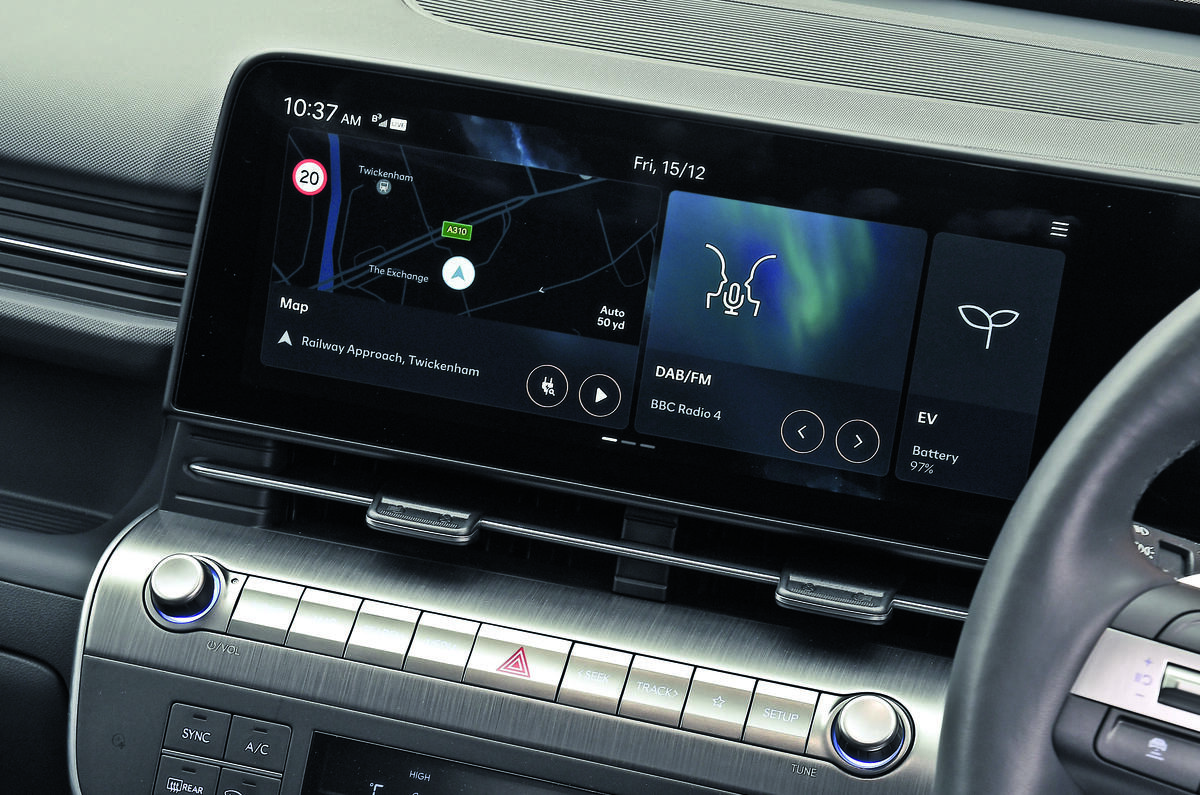The "right size" is the most important thing for an interior touchscreen, rather than making it as big as it can possibly be.
That’s according to Hyundai design chief SangYup Lee, who confirmed that a next-generation touchscreen was in development and would be bigger than the dual 12in displays the brand currently fits in models such as the new Ioniq 9, the launch of which Lee was speaking at.
“But the right size is most important, making the screen easy to see and read. Having the right content is also important, as is the right UX [user experience],” said Lee.
The size of touchscreens across the car industry is increasing all the time, most notably with the likes of Mercedes’ Hyperscreen, which runs across the full width of a dashboard.
Such an expansive approach is not planned by Lee. He added that Hyundai still valued physical buttons and switches for crucial controls, particularly ones that are “safety related or have frequency of use”, such as heater controls and the hazard button. To that end, such switches should be “easy to use and at a natural angle” to allow you to keep your eyes on the road.
More broadly on the Ioniq 9, this model is the production version of the Seven Concept, which was revealed three years ago at the same LA motor show where the new car makes its world debut.
Lee said he still valued concept cars because they allowed Hyundai “to push and show we have a mission”.
But most importantly, he said, “the production version must be equally good, or better” and concept cars are “a commitment to deliver, not have you living in la-la land”.
The Ioniq 9 is the latest Ioniq model to have little resemblance to the other Ioniq models in the range, but Lee said there were features that linked them, including the pixel light treatments at the front and rear and having the longest wheelbases in their segments for the maximum interior space.
Avoiding a cookie-cutter approach is a deliberate strategy, though, with Lee saying “Hyundai is customer centric in its designs” and it was more important that the car was designed to be as good as it possibly can be for the job it’s intended to do rather than look like an upscaled or downscaled version of another model in a range.








Join the debate
Add your comment
I LOVE screens. Apart from some hard buttons and switches for important functions, and maybe some sensually application of leather and wood, eveything else should be screens. And totally user-configurable. One day I might want to be in a forest, another snrokelling on a reef, another watching Blackadder and checking my emails.
Couldn't agree more. We need MORE screens. I can't wait for the car makers to replace the ridiculously heavy and antiquated windscreen and windows with high def cameras and screens - then they can save money on potentially unreliable and squeaky window wipers and window winding mechanisms. Come On!
I'd probably keep the windscreen and side windows but, hey, fight the power!